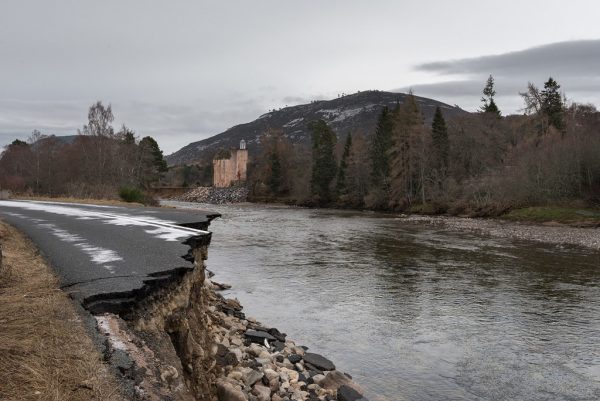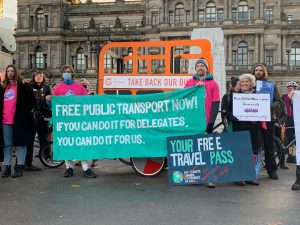
People must lead the transition for the North East of Scotland
We often think about the climate crisis as something happening elsewhere, but increasingly it crops up in our communities. Whether that’s more frequent and intense storms that saw extreme flooding in Ballater in 2015, or the risk of water shortages in Aberdeen, or as I witnessed this summer, seeing juvenile Guillemots starve to death on the beach of Aberdeen, because the small fish they eat had moved elsewhere due of unseasonably warm waters.

But the crisis has been happening in places like Sub-Saharan Africa, Latin America or South East Asia for much longer. Many people it affects don’t have the capacity to adapt or get out of harm’s way because historically, these countries have been stripped of natural wealth by European colonial powers, and are now often left with a legacy of unpayable debt.
In 2014, while living in Nepal, I heard of a pilot in a plane who saw a huge deluge of water cascading down a valley towards a village, he tried to raise the alarm by radioing back to the airport. But it was too late for the people living down the valley. I learnt the deluge, which wiped out entire villages in an instant, was caused by the melting of centuries old ice in the Himalayas due to climate change.
Those people were amongst the poorest in a country, which is economically one of the poorest on earth. This is how the climate crisis plays out, it’s the poorest of the poor who suffer first.
Wealthy countries must act on the climate emergency
This means relatively rich countries like Scotland and the rest of the UK have a responsibility to decarbonise our entire economies, first and rapidly. If we are to do this fairly, then it means we have to work towards a fossil fuel free Scotland by 2030. We also have to provide finance to places like Nepal to adapt to the ongoing crisis which is impacting their people right now.
And this is why we have to talk about rapidly phasing out oil and gas here in the North East, because of the role it has played in devastating lives around the world.
And I don’t say this lightly, because I, along with my father and my brothers, (like many people in the North East) have all worked directly or indirectly in the oil and gas industry. It can pay well, but I also witnessed that this industry doesn’t care about people, nor does it care about the planet. It only cares about one thing: Profit. It puts profit for its shareholders first before anything else.
But in my home city of Aberdeen, I often hear oil bosses and their cheerleaders from the local oil establishment claim that the industry is adapting, and of how it is going to be central in the energy transition. Yet how can we trust an industry to oversee any transition, let alone a Just Transition, when their number one goal is profit for themselves.
These so-called energy companies, at best only spend 5% of their capital investments on renewable energies, the rest is spent on continuing oil and gas extraction and exploration, when the simple truth is, most of those fossil fuels have to stay in the ground.
The transition to a better society
So, what can we do?
For me a Just Transition goes far beyond the idea of replacing oil jobs with green jobs.
It can also include worker or community owned energy companies, ideas like universal basic income and more free time, an NHS and social care system that meets the needs of people and where workers are properly valued.
It means free public transport that’s owned by the people and streets with clean air and valued greenspaces on every corner. A just transition means everyone gets the opportunity to live in a warm, affordable home.

But here is the question – who and how will we bring that world about?
I think there is really only one way of bringing about that world. It is by the only thing that has ever brought social, political and economic justice. It is by people getting together in workplaces, in communities and organising, and working out how to go about making that world happen.
I believe a Transition can only be just if it’s led by the people, the workers and the communities it will affect. Because we are the ones who are best placed to understand how to meet our needs of food, shelter, social and cultural connections. The challenge is great but the positive changes we can win together are even greater.
My role as a Just Transition organiser in the North East, is about building a people led Just Transition movement. If you’re interested and want to get involved then I would love to hear from you at sherrett[at]foe.scot or sign up to our mailing list
This is an edited version of speech given by Scott Herrett to the Aberdeen Climate Rally in October 2021
